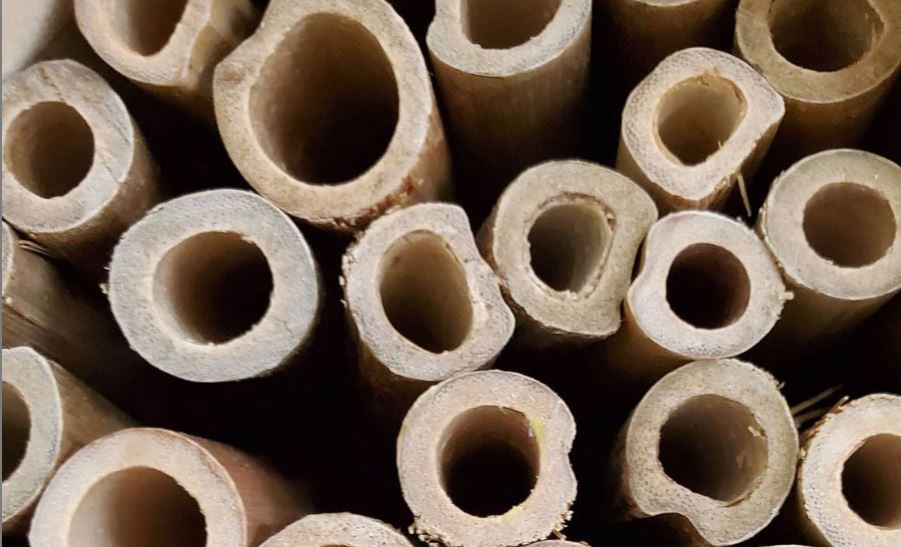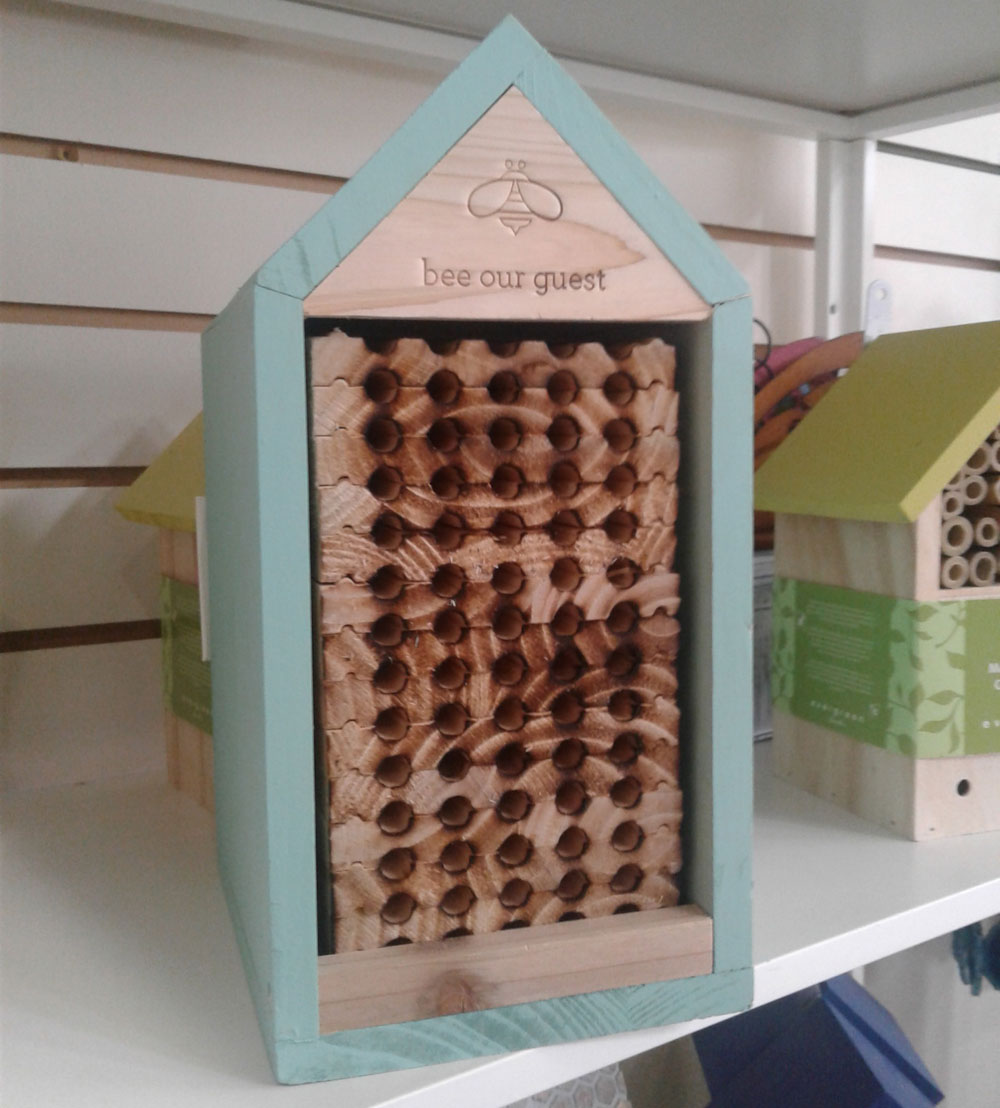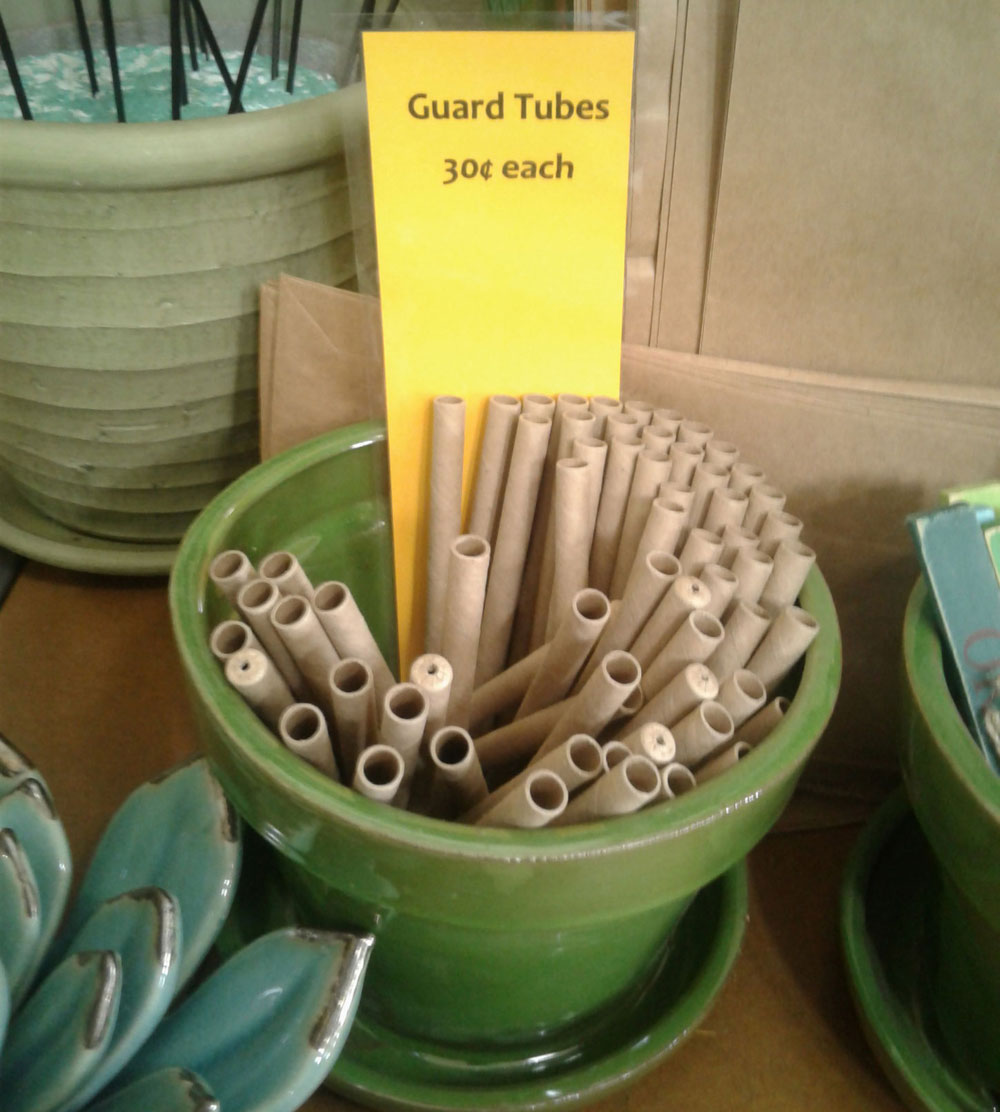Become a Mason Bee Caretaker
What Are Mason Bees?

Mason bees are important pollinators playing a vital role in the development of many fruits. Slightly smaller than the honey bee, mason bees have shiny, dark blue bodies. The females have stingers, but will not sting unless threatened. The males have no stingers.
Mason bees do not live in hives, but in nesting tubes within close proximity to one another. They do not excavate holes, instead, they search out man-made nesting boxes, tubes or any 5/16” diameter hole that is naturally occurring.

Mason bees collect pollen from the source nearest to them regardless of plant species, usually staying within 100 yards of their nest. They land directly on the flower stigmas, the reproductive structure of the blossom, making them VERY efficient pollinators. Each female is capable of visiting over 300,000 flowers during her lifetime.
Emergence
Once temperatures are above 54 degrees for at least five days, mason bees become active. They return to their nesting sites at night and during cold snaps. Emergence usually coincides with the development of early blooming plants and most fruit trees, including apples, pears and stone fruits. You can delay emergence by leaving the bees in cold storage until pollination is needed.
Male bees emerge first and wait near the hole entrances for the females to appear. This may take up to two weeks. They mate almost immediately upon the females’ emergence. The males spend this time foraging for food, and then die after mating has occurred.
Habit
Female bees stay busy collecting pollen and nectar. In each hole she will regurgitate the nectar and place the pollen on it. After enough pollen has been collected she will lay an egg on the mixture, repeating the process until the hole is filled. Eggs laid in the rear 30% of the tube become females, while the eggs in the forward portion become males. The female will live from 4 – 8 weeks laying 1 – 2 eggs everyday, plugging each egg and the end of the tube with a thin layer of mud. The eggs grow into adult cocoons over the summer.
Mason Bee Care

Store mason bee cocoons in the refrigerator until ready to use. The refrigerator should be 30 – 40 degrees with 60 – 70% humidity. You may need a cocoon humidifier; most refrigerators are not humid enough. When daytime temperatures are consistently 55 degrees or higher and flowers are blooming, set the cocoons outside. Place them on top or near the nesting site.
Housing in the Spring
You can buy a bee house or build one yourself out of wood, cardboard or other natural, porous materials. Guard tubes and tube liners help make bee maintenance easy. There are many online sources with information about building nests.


Summer Maintenance
When the bee tubes and nest holes are plugged with mud, the females are done laying their eggs. Pollination ends around late May/early June. The female will die and her eggs will grow into adult cocoons over the summer. The eggs need to be protected from predators such as parasitic wasps, ants and birds. You can cover the nest with very fine mesh and chicken wire. The eggs are very fragile until late September so be careful to not jostle them.
Winter Maintenance
By late October it is time to store the bees in cold temperatures until Spring. Remove, clean and inspect the cocoons. You can wash the cocoons in a solution of 1 gallon of water and 1 tsp bleach for 1-2 minutes. Any cocoons that sink to the bottom in the water are damaged and can be thrown away. Rinse for 3-4 minutes. Air dry for an hour on a paper towel. Store in a refrigerator. To make sure they get enough humidity, place cocoons next to a small bowl of moistened paper towels inside a ventilated container. Keep paper towels damp. Clean the nests and replace tubes. A clean home is important to avoid the risk of mites and diseases.
For more information visit: www.crownbees.com
YARD ‘N GARDEN LAND
1501 NE 102nd Street
Vancouver, WA 98686
360.573.7172
STORE HOURS
Monday – Saturday: 8:00am – 6:00pm
Sunday: 9:00am – 5:00pm
HOLIDAY HOURS
Memorial Day: Close at 4pm
July 4th: CLOSED
Thanksgiving Day: CLOSED
Christmas Eve: Close at 2pm
Christmas Day: CLOSED
December 26th: CLOSED
New Year’s Eve: CLOSED
New Year’s Day: CLOSED
